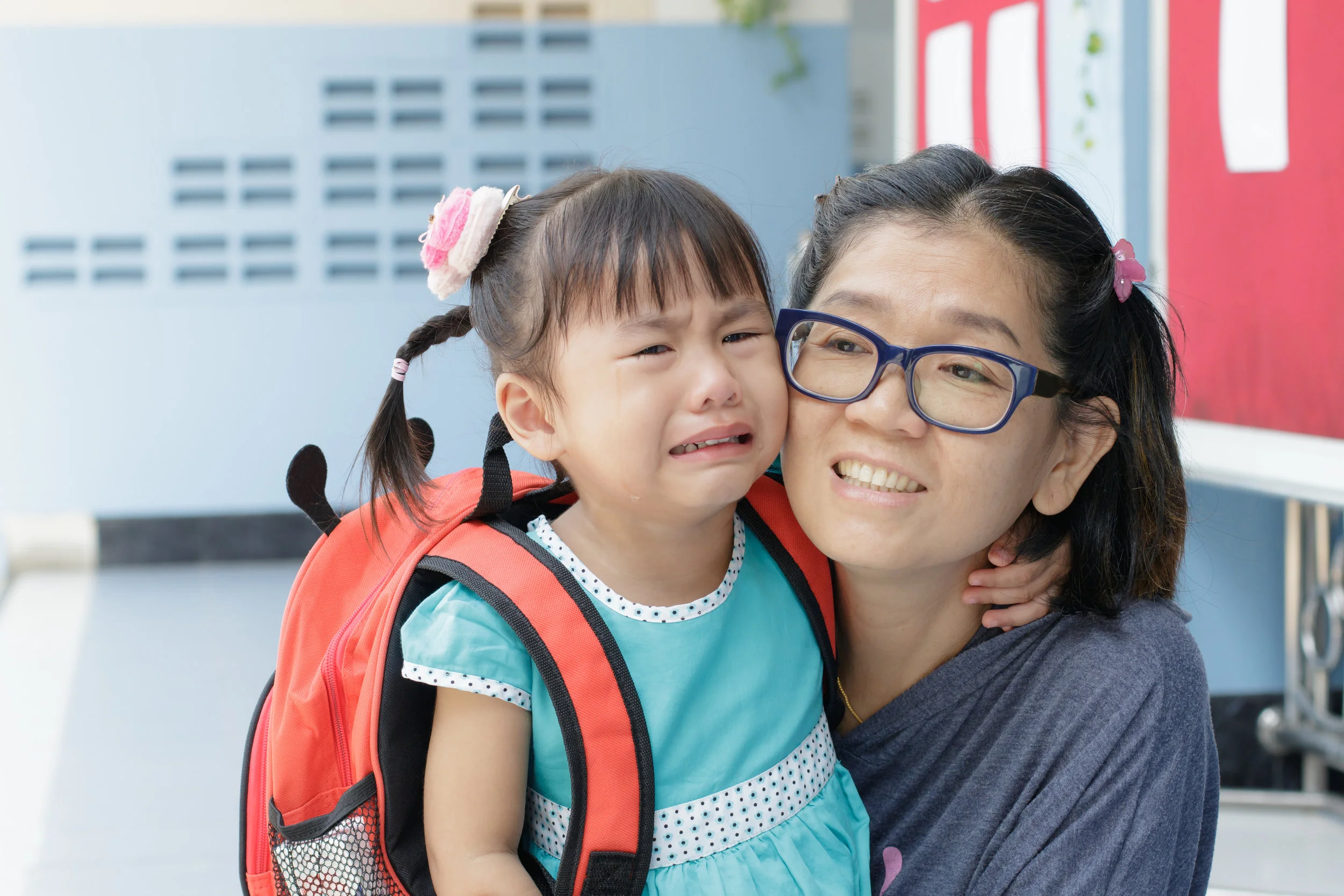Difficult Behaviour
When anger and shouting at your kids becomes an almost daily event you might start to wonder: Why am I so angry all the time? And how can I stop this?!
In this week’s blog I’ve distilled down the deeper reasons why we parents can feel SO angry with our kids. If you can understand what’s really triggering your anger and reactivity, you’re in a much better position to heal yourself from it.
Essentially we are taking whatever happens with our kids very personally. When we’re upset, the situation has become all about us (in our minds, at least!).
In case you think you’re the only one who get angry with their kids… let me confess. A few weeks ago I lost it with my daughter.
So I totally understand why YOU get angry with your kids!
In the midst of your child being a nightmare, it’s natural to get angry!
Well in this two-part blog post I’m going to explain why you’re really getting triggered and angry with your kids. I’m going to help you work out what’s underneath the anger so you can heal it.
And I’ll give you five simple ways to help stop shouting and turning into a monster when your kids are difficult.
I know what it’s like to feel so embarrassed as my kid is screaming and crying in the supermarket over a box of teddy bear cookies and the whole shop is staring at us!
I know the panic feeling when you’re not sure how to react – should I get strict with her to get her to be quiet? Or if I cuddle her enough will she calm down? What will work?!
Shouldn’t I be able to calm her down and get her to be quiet? I’m her mother! And what did I do wrong that caused her to lose it like this?!
Well it doesn't have to be this hard! And I'd like to help you make your child's meltdowns easier and fewer.
Did you know that the majority of parents think that spanking is sometimes or often a good idea?
But scientific research tells us is that spanking is not good for your child’s development – it does hurt them in the short AND long term.
And what’s more, it doesn’t even improve their behaviour!
If you’ve ever had to deal with the in-laws, your parents or even your partner telling you your child needs a “good, hard spanking”, I want to empower you with the facts so you can tell them they are wrong!
What’s the hardest thing about being a parent? Do you think I’m going to say “lack of sleep”?! For me that’s definitely been up there as a massive challenge.
But, No! The hardest thing about parenting is the stress of believing that there’s something wrong with our kids and blaming ourselves for it.
When our toddler has a tantrum or our baby won’t sleep at night or our preschooler won’t eat dinner night after night, we can suffer so much about these things.
Want to know why we suffer and what you can do about it?
Now I consider myself a total expert in this area! Not just because I’ve done a load of research into this area, but mainly because I have a super-strong-willed daughter who will not just DO something when you ask. No, that would be too simple…. :-)
But I’ve found the way to get her to co-operate with what I need her to do (most of the time!). So here are the tactics that really work.
When your child screams "I hate you!" and hits you, it's possibly the most difficult time ever to be nice to them! Would you agree?!
We feel hurt - in our heart and on our bruised leg. At this point, it’s pretty hard to empathise with your child and be calm and kind.
So why should we parents be sympathetic with our kids when they say they hate us and turn into crazed balls of aggression?! And how can we not react to our own upset at being hit or screamed at?
What is it with the hitting?! If your child is anything like mine, he or she sometimes gets into an out-of-control hitting frenzy. It could be only occasional, or maybe it’s turned into a real phase.
Actually this is very common – and it’s completely normal behaviour for toddlers and preschool kids (and even school-age kids).
So why is the hitting happening? And what can we do about it.
Are you sick of the battles with your kids every time you want them to do something? Would you like to find a calmer way to get through every day with them?!
Today I have a step-by-step guide for you to shift the dynamic with your kids from conflict and battle, to calm and loving instead.
Plus, I’ve got a downloadable Cheat Sheet “6 ways to Shift from Battle to Calm” full of specific strategies you can use to shift the dynamic when you’re in the heat of the moment trying to get your kids to do something!
When we were visiting family friends recently: 5yo Johnny says: “I don’t want the pink plate, I want the green one. Gemma took my green plate!“ Tears, screeching and then hits his sister Gemma.
It’s amazing how little things can so upset a young child, isn’t it?!
So what’s happening – why do kids react like this? What's actually going on in their brains?!
Does “parenting doubt” plague you? Often wondering whether your parenting choices are the right ones?
It’s hard to feel sure about your choices when you see another parent doing things differently and their child seems so much better behaved than yours. Or when your mother-in-law comments how your child is “a handful, isn’t he?”
Today I want to help you feel confident about your choices and let go of any nagging doubts. I believe there are two main ways to know if how you’re parenting is ‘right’ or not.
Do you have times where your kids are just bouncing off the walls or being hyperactive or rough? They don’t seem to listen to anything we say and just do frustrating things like throwing, hitting or running away.
For a tired parent these times can be really challenging. Sticking the kids in front of the TV or iPad can seem like a quick fix, but often they’re even worse when it’s time to turn it off and they have a massive meltdown when you try and switch it off!
So here are five quick and simple ways to calm your kids down when you need it (that don’t involve a screen)!
Has your child ever gone through a difficult stage - where they have become angry, aggressive, and totally unreasonable for weeks on end..? These phases are usually due to a big life change or a developmental leap that is stressing your child's emotional and physical system.
Parenting is hard enough, so why do we have to deal with these difficult stages and what can we do about it?
I was asked a really important question from a mother who wanted to know what's best to do when her child hits or hurts their siblings or other children:
“What about the other child they have hurt? Shouldn’t we be giving them all the attention, not the naughty one?”
The answer is that both need your attention!
Let’s say your child hits his little brother, who is now crying. Here’s what you can do.
I want to answer one of the biggest doubts (and most common question) I hear from people about using mindful parenting (especially coming from partners!).
“Aren’t we teaching our kids to be naughty if, every time they act out, we reward them with our attention?”
It’s a good question! And the answer lies in understanding how our children’s minds work and how they develop control over themselves.
According to most parents I talk to, getting kids to co-operate is up there with their biggest challenges.
Whether you need ideas to simply get your kids out the door peacefully, or help with a hitting or angry child, I’ve put together the definitive mindful parenting guide to managing meltdowns and getting kids to co-operate.
And don't miss the bonus downloadable Cheat Sheet listing the strategies you can use in those tricky situations!
Letting your child cry at the right times can actually be good for them. What’s more, trying to stop your child from crying could actually be doing them more harm than good.
But there are two key ingredients that mark the difference between crying that’s helpful for their happiness versus potentially damaging: (1) Your connection with them and (2) Your empathy. This blog will give you a step by step process for how to ensure you get these key ingredients right.
[Q] One of the biggest areas of conflict in our house is around screen time. The kids are always nagging for more time on the iPad or TV, and I feel they have plenty as it is. My oldest child is getting his own laptop at school next year. I’m worried it will become even more of an issue. What can I do?
[A] Yes – I hear you! This is one of the biggest issues facing parents. This is where parents need to really take charge, work out what you think is okay for your child, and set clear limits. Screen time is a slippery-slope.
Many of us were taught as kids that it was not okay to feel strong emotions - high excitement, anger, sadness, fear were all frowned upon. Settle down, be quiet, pull yourself together, we were told. But the problem with that is we learnt to bottle up our emotions or try to get rid of them - resulting in pent up frustration, anxiety, depression or feeling totally disconnected from others.
We need to teach our kids a better way to handle emotions.
[Q] Argh – tantrums! What do I do when my 4yo has a tantrum? And can I avoid them happening? It’s so embarrassing having him meltdown in front of other people.
[A] If you’re getting tantrums from your young child, you’re not doing a bad job of parenting! Tantrums are a normal part of kids development. Young children get overwhelmed with their emotions and don’t know how to manage them so it takes over.



















![[Q&A] What can I do to stop the conflict with my kids about screen-time?](https://images.squarespace-cdn.com/content/v1/5760eff81d07c0ae9835c0e0/1473337830250-97ZIGPAICNS506YMO89Z/girl+close+up+eyes.jpeg)


I know I'm sounding controversial with this week's blog title! But I'm not actually being that extreme - locking your child in the laundry is truly one of the discipline recommendations of one of the most widely accepted parenting approaches in Australia and overseas.
While there are many good things about this program, I want to take issue with this recommendation.
Why do they tell parents to lock their kids in the laundry?